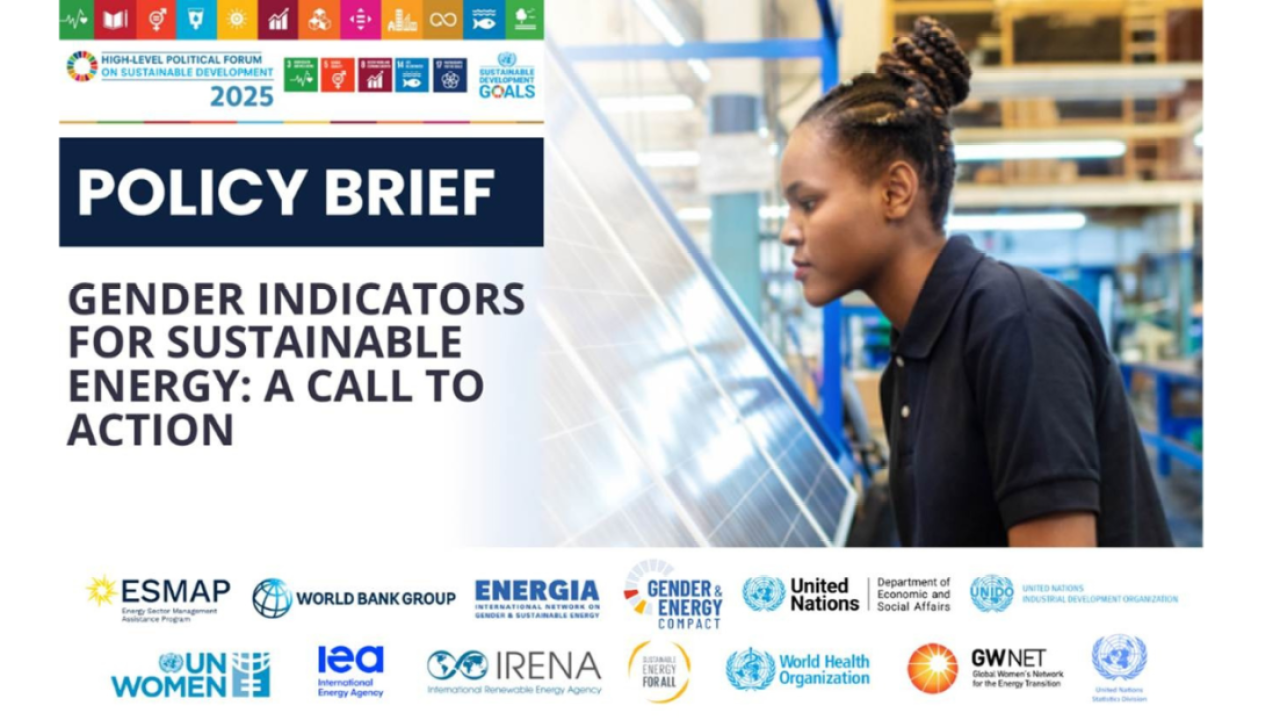Unlocking the benefits of productive uses of energy
Electricity can increase productivity, create new jobs and businesses, and reduce the time spent on unpaid work. However, research shows that access to electricity alone is insufficient to trigger productive uses—things like skill training, financing to purchase equipment, and access to markets are also necessary. Because men and women use energy differently at work, the promotion of productive uses delivers different benefits. Male entrepreneurs tend to benefit more from traditional promotions.
This study looks at the ways women are being left behind by formal energy interventions in Ghana, Tanzania and Myanmar, and how to create new systems that promote gender equality.
Gender-blind energy solutions target the industries that use the most energy, which are dominated by men. Modern energy access helps businesses grow, so these disparities tend to snowball, leaving women-led businesses behind.
- Men work in industries with heavy energy usage. Men are more heavily involved in rural enterprises, dominate the most profitable sectors of agriculture, and operate in sectors that typically consume more electricity or diesel.
- While women work in energy-light industries. Societal norms relegate women to lower-energy careers like food preparation and hairdressing, which make them less interesting for private sector suppliers.
- Men have more capital. Men are also more likely to own land, homes and high-powered machinery which allows them better access to finance and capital to start and grow businesses.
Societal standards tend to favor men as business owners, and make it difficult for women to enter many industries. The study revealed a variety of factors that can help alleviate this, and assist women in crossing over into male-dominated sectors, or occupying positions of higher responsibility.
- Tools can make highly physical industries accessible. Modern machinery that reduces reliance on physical energy helps women enter previously male-dominated sectors.
- A sliding scale of energy costs helps income from high-energy businesses subsidize low-energy businesses, more often owned by women. Ghana’s progressive tariff scheme, by which higher-consuming commercial clients pay more than those consuming less, creates a cross-subsidy from more electricity-intensive, male-owned enterprises to lower-consuming, female-owned enterprises.
- Community support and exposure to role models help women achieve more. Role models who have successfully transcended the limitations imposed by traditional gender roles can demonstrate to others what is possible, and support systems like women’s groups help counteract some of the difficulties of breaking into a new industry.
The small-scale nature of women’s businesses acts as a drag on growth and keeps them relatively low electricity consumers. Women can be supported to join together in associations to target customers together, access supplies at a lower cost, or increase their bargaining power with government and private investors.
Recommendations from the Report
- Improve access to finance and equipment. Men and women entrepreneurs both cited access to finance as the main constraint to business growth. Many women are not attracted to typically male sectors that require substantial physical strength. Support for new technologies that replace metabolic energy with electric power could make it easier for women to cross over into those sectors.
- Support traditionally female trades with high-quality, affordable energy, not just electricity. Female business owners need better and cheaper cooking fuels (such as LPG or improved cook stoves).
- Support smaller-scale electricity users with systems like progressive tariffs or improve energy supply for subsistence agriculture (e.g. irrigation using water pumps). As supporting subsistence-based women’s activities may not appeal to private investors, the public sector may need to fill this gap.
- Support business owners to develop soft skills and gain exposure to role models who are overcoming occupational segregation.







